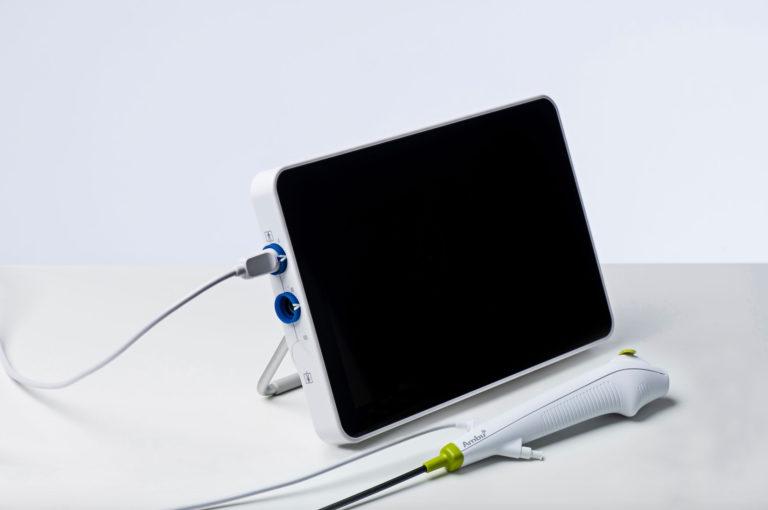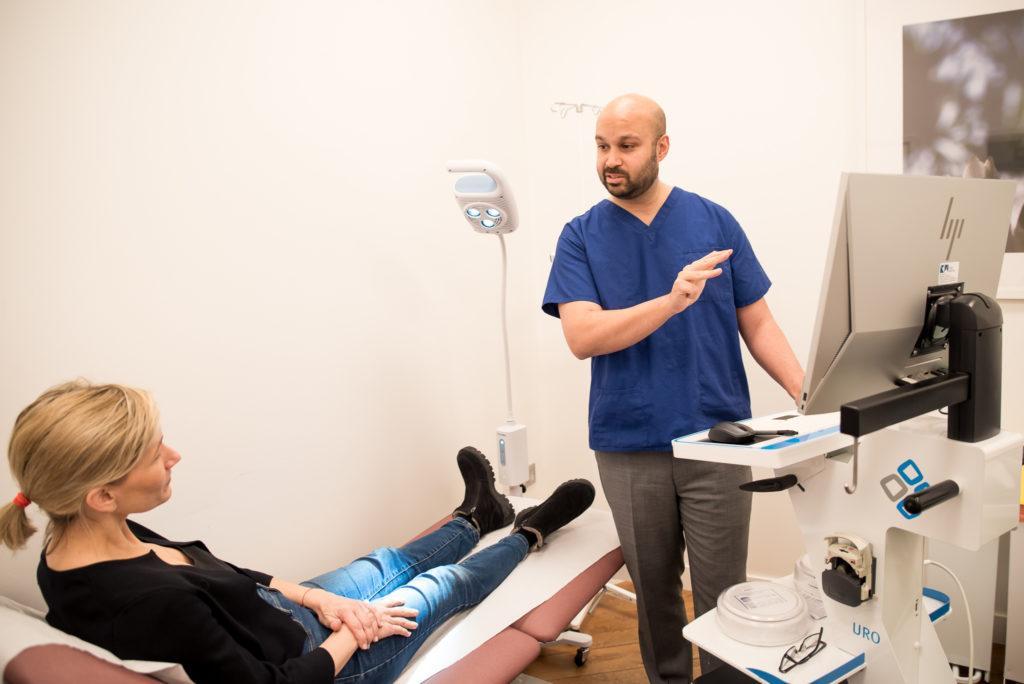What is Flexible Cystoscopy?

Flexible cystoscopy is a procedure used to examine the bladder using a flexible tube called a cystoscope. This procedure is commonly performed by a urologist or a specialist nurse and is a vital tool in diagnosing and treating urinary tract conditions. The procedure can be performed quickly and easily in a comfortable clinic setting, without the need for a hospital stay or day surgery which saves time and money, as well as reducing the risk of complications associated with anaesthesia.
What is cystoscopy used for?
One of the main reasons for performing a flexible cystoscopy is to investigate urinary tract symptoms such as blood in the urine, pain during urination, or frequent urination. It can also be used to diagnose and monitor conditions such as bladder cancer, bladder stones, and urinary tract infections. The procedure may also be performed to remove small bladder stones or to insert a catheter.
What can I expect during cystoscopy?
Before the procedure, patients may be asked to provide a urine sample for testing to rule out any infections. An anaesthetic gel will be applied to the urethra to help numb the area and reduce discomfort. The flexible cystoscope is then inserted into the urethra and advanced into the bladder. The cystoscope is a thin, flexible tube with a camera and light at the end, allowing the urologist to see inside the bladder. During the procedure, the bladder may be filled with a sterile solution to provide a clearer view.
Patients may experience some discomfort during the procedure, such as a burning sensation when the anaesthetic gel is applied or a feeling of pressure when the bladder is filled. However, the procedure is generally well-tolerated and only takes a few minutes to complete.
What are the risks?
There are some risks associated with flexible cystoscopy, although they are relatively rare. These can include urinary tract infections, bleeding, and perforation of the bladder. Patients may also experience some mild side effects after the procedure, such as blood in the urine or mild discomfort during urination. It is important to follow any post-procedure instructions given by the urologist, such as drinking plenty of fluids and avoiding strenuous activities for a few days.
Flexible cystoscopy is a safe and effective procedure used to investigate and treat a range of urinary tract conditions. Patients can expect some discomfort during the procedure, but the benefits of diagnosis and treatment outweigh the risks associated with the procedure. If you have any concerns about the procedure, speak to your urologist or specialist nurse for more information.

